- Home
- Quizzes
- My Quiz Activity
- Newsletters
- Sports Betting
- MY FAVORITES
- Add Sports/Teams
- SPORTS
-
NFL
- NFL Home
- Arizona Cardinals
- Atlanta Falcons
- Baltimore Ravens
- Buffalo Bills
- Carolina Panthers
- Chicago Bears
- Cincinnati Bengals
- Cleveland Browns
- Dallas Cowboys
- Denver Broncos
- Detroit Lions
- Green Bay Packers
- Houston Texans
- Indianapolis Colts
- Jacksonville Jaguars
- Kansas City Chiefs
- Las Vegas Raiders
- Los Angeles Chargers
- Los Angeles Rams
- Miami Dolphins
- Minnesota Vikings
- New England Patriots
- New Orleans Saints
- New York Jets
- New York Giants
- Philadelphia Eagles
- Pittsburgh Steelers
- San Francisco 49ers
- Seattle Seahawks
- Tampa Bay Buccaneers
- Tennessee Titans
- Washington Commanders
-
MLB
- MLB Home
- Arizona Diamondbacks
- Atlanta Braves
- Baltimore Orioles
- Boston Red Sox
- Chicago White Sox
- Chicago Cubs
- Cincinnati Reds
- Cleveland Guardians
- Colorado Rockies
- Detroit Tigers
- Houston Astros
- Kansas City Royals
- Los Angeles Angels
- Los Angeles Dodgers
- Miami Marlins
- Milwaukee Brewers
- Minnesota Twins
- New York Yankees
- New York Mets
- Oakland Athletics
- Philadelphia Phillies
- Pittsburgh Pirates
- San Diego Padres
- San Francisco Giants
- Seattle Mariners
- St. Louis Cardinals
- Tampa Bay Rays
- Texas Rangers
- Toronto Blue Jays
- Washington Nationals
-
NBA
- NBA Home
- Atlanta Hawks
- Boston Celtics
- Brooklyn Nets
- Charlotte Hornets
- Chicago Bulls
- Cleveland Cavaliers
- Dallas Mavericks
- Denver Nuggets
- Detroit Pistons
- Golden State Warriors
- Houston Rockets
- Indiana Pacers
- Los Angeles Clippers
- Los Angeles Lakers
- Memphis Grizzlies
- Miami Heat
- Milwaukee Bucks
- Minnesota Timberwolves
- New Orleans Pelicans
- New York Knicks
- Oklahoma City Thunder
- Orlando Magic
- Philadelphia 76ers
- Phoenix Suns
- Portland Trail Blazers
- Sacramento Kings
- San Antonio Spurs
- Toronto Raptors
- Utah Jazz
- Washington Wizards
-
NHL
- NHL Home
- Anaheim Ducks
- Arizona Coyotes
- Boston Bruins
- Buffalo Sabres
- Calgary Flames
- Carolina Hurricanes
- Chicago Blackhawks
- Colorado Avalanche
- Columbus Blue Jackets
- Dallas Stars
- Detroit Red Wings
- Edmonton Oilers
- Florida Panthers
- Los Angeles Kings
- Minnesota Wild
- Montreal Canadiens
- Nashville Predators
- New Jersey Devils
- New York Islanders
- New York Rangers
- Ottawa Senators
- Philadelphia Flyers
- Pittsburgh Penguins
- San Jose Sharks
- Seattle Kraken
- St. Louis Blues
- Tampa Bay Lightning
- Toronto Maple Leafs
- Vancouver Canucks
- Vegas Golden Knights
- Washington Capitals
- Winnipeg Jets
- NCAAF
- NCAAM
- Boxing
- Entertainment
- Lifestyle
- Golf
- MMA
- Soccer
- Tennis
- Wrestling
- More Sports
- RESOURCES
- My Account
- YB on Facebook
- YB on Twitter
- YB on Flipboard
- Contact Us
- Privacy Policy
- Terms of Service
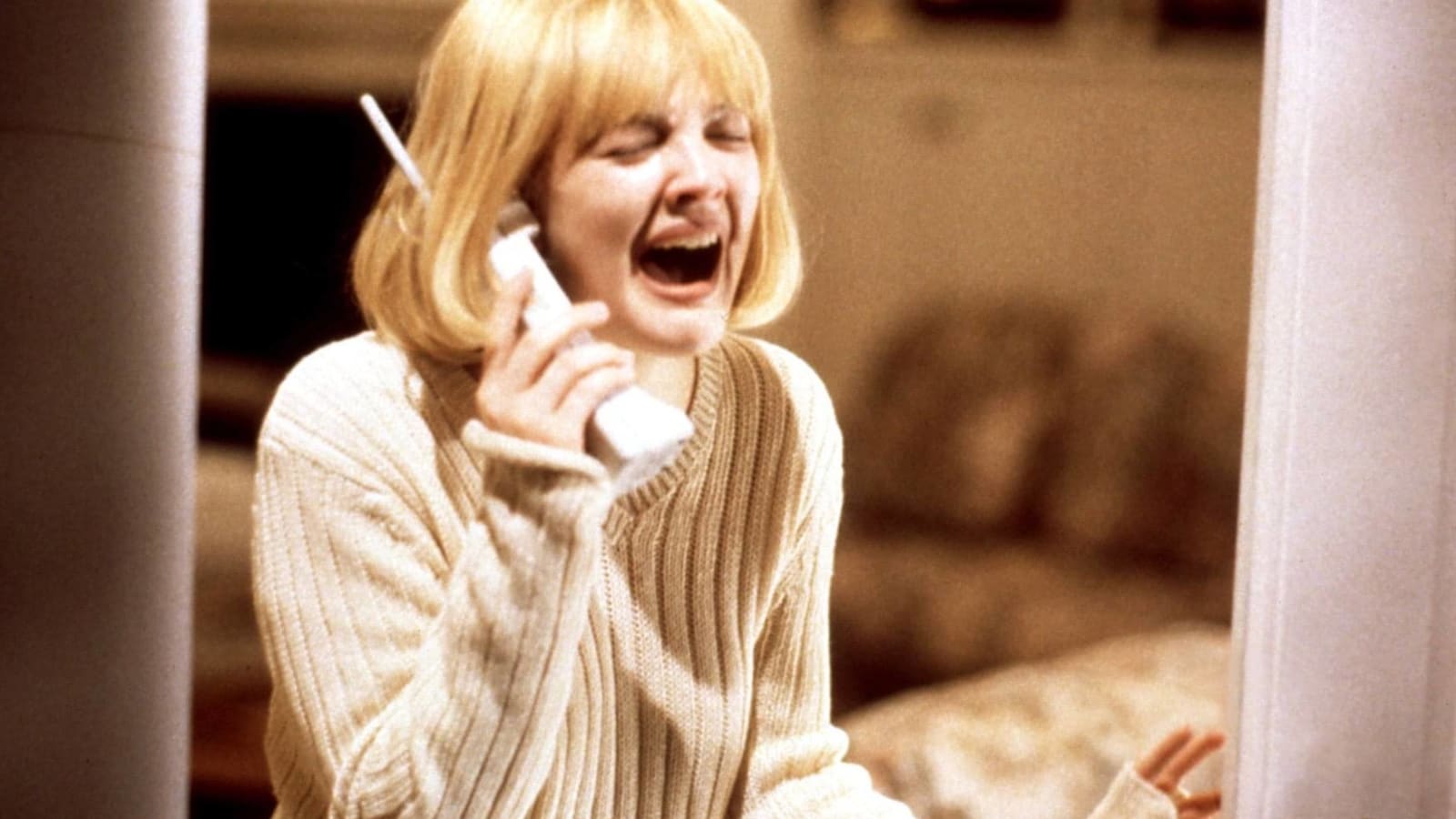
25 horror movies that were based on true stories
When watching an especially scary horror movie, it’s easy to dismiss the film’s frights as fake...unless, of course, the plot happens to be inspired by actual events. That makes things a bit more tricky and a bit more terrifying (or at least more entertaining). Consider yourself warned: You may be surprised by some of the entries on this list. Here are the 25 best horror movies based on true stories.
"The Exorcist" (1973)
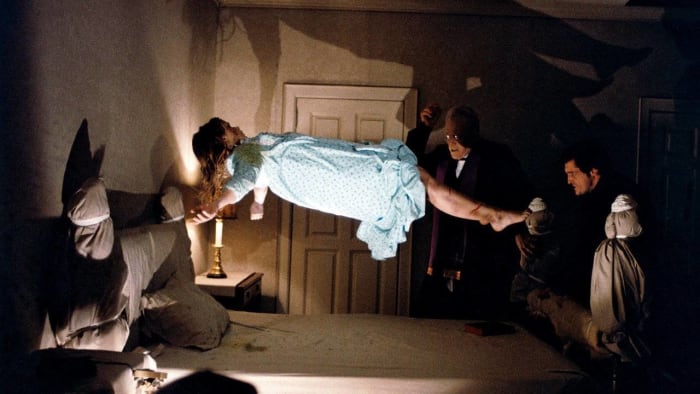
Often referred to as the scariest horror movie in history, “The Exorcist” is based on a true story. Well, it’s actually based on a 1971 book of the same name by William Peter Blatty (who served as a producer and screenwriter on the film), but the book is based on the exorcism of Roland Doe. Doe was the pseudonym given to a young boy who, in the late 1940s, was visited by several priests attempting to cure him of an alleged demonic possession. Roland reportedly spoke in a gravelly voice and was blamed for furniture and objects mysteriously moving or flying across the room, as well as a number of strange, unexplained noises. During two separate exorcisms, the boy also became violent, breaking the nose of one priest and slipping out of one of his arm restraints, sticking his arm into his mattress, breaking a metal spring, and stabbing a different priest with the sharp object.
"The Texas Chain Saw Massacre" (1974)

The 1974 horror classic “The Texas Chainsaw Massacre” (as well as the entire franchise of sequels and remakes) was entirely fictional, but some elements were inspired by notorious 1950s Wisconsin murderer Ed Gein. When Gein was arrested for killing a local hardware store owner, he also confessed to a previous murder, and authorities then discovered he had exhumed several corpses from local cemeteries. Using these bodies, he fashioned a wastebasket, lampshade, and masks made of human skin and faces, placed human skulls on his bedposts, stitched together a belt made of nıpples, and collected a plethora of other body parts as trophies. In short, he made Leatherface look sane by comparison.
"Jaws" (1975)
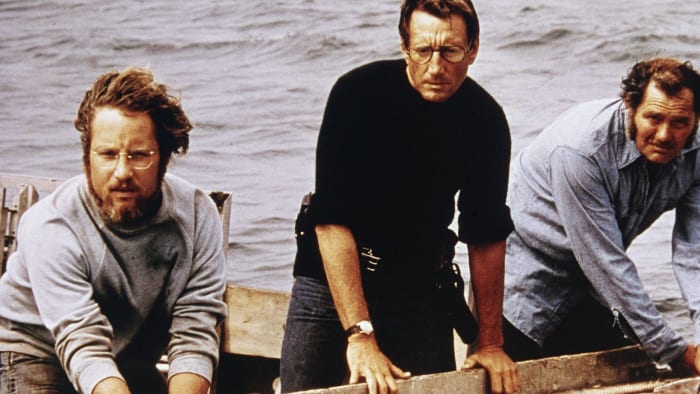
The epic monster movie “Jaws” was based on Peter Benchley’s 1974 book of the same name, which wasn’t inspired by any specific shark attack but instead the exploits of shark fisherman Frank Mundus. Captain Quint (Robert Shaw) of “Jaws” was allegedly modeled after the Long Island native, even though Benchley denies this fact. However, Shaw personally confirmed the tie between Mundus and his character, and Mundus' friends and family have no doubts about what they deem an obvious connection.
"The Town That Dreaded Sundown" (1976 and 2014)
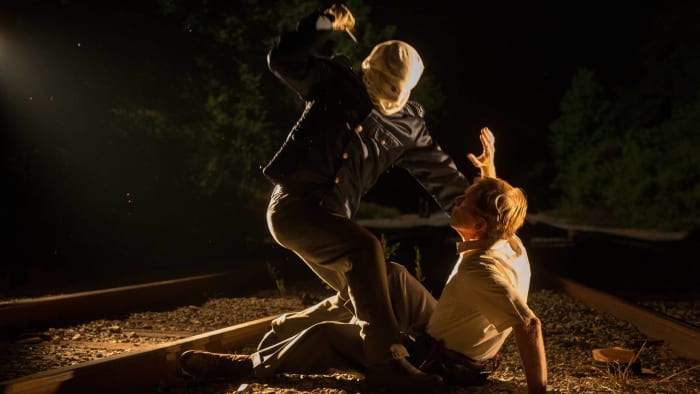
The Phantom Killer (or Phantom Slayer) responsible for the so-called “Texarkana moonlight murders” attacked eight people, claiming the lives of five, over two-and-a-half months in 1946. The unknown assailant was never caught, and the terrifying events were immortalized in “The Town That Dreaded Sundown,” which was first released in 1976 and later remade in 2014. Unlike many films “based on a true story,” the details of the films generally align quite closely with the true narrative, right down to the character of Manuel Trazazas “Lone Wolf” Gonzaullas, who was, in fact, a real Texas Ranger who worked on the case.
"The Hills Have Eyes" (1977)

No one knows for sure if the legend of Sawney Bean is a true story, but according to folklore, Bean was the leader of a 48-person clan in 16th-century Scotland that kidnapped, killed, and ate more than 1,000 people. During the search for the mysterious murderers, locals lynched numerous innocents, and upon capturing Bean, they brutally executed him and his followers. This tale of a cannibalistic clan that turned normal people into savages — on both sides of the law — was the inspiration for “The Hills Have Eyes,” a 1977 horror film written, directed, and edited by Wes Craven. A remake was released in 2006, along with a sequel in 2007, but neither could stand up to the original.
"The Amityville Horror" (1979)

As scary as it is, the basic premise of 1979’s “The Amityville Horror” is absolutely true. Ronald DeFeo Jr. really did shoot and kill all six members of his family in a Dutch colonial house in Amityville, New York, and the home was later occupied by the Lutz family. The Lutzes allegedly experienced much of the phenomena portrayed in the film (and the supposed non-fiction book by Jay Anson on which it was based), including swarms of flies inside the house out of season, vivid nightmares of the murders, cold spots, mysterious smells and noises and the fact that George Lutz would unintentionally wake up every morning at 3:15, which he later found out was the time the murders took place. And yes, the Lutz family really did flee the house without their possessions, never to return.
"A Nightmare on Elm Street" (1984)

The character of Freddy Krueger was entirely an invention of writer and director Wes Craven, as was the teen-centric aspect of the film. But the fear and possibility of dying in one’s sleep due to terrifying nightmares? That’s unfortunately a very real thing. In the 1970s, a group of Southeast Asian genocide refugees in the U.S. suffered from such vivid night terrors that some refused to sleep. A few who eventually fell asleep died during their slumber despite being otherwise healthy. The condition was first dubbed Asian Death Syndrome but was later called sudden unexplained death syndrome, or Brugada syndrome, and it was Craven’s inspiration for his now-famous, uber-popular horror franchise.
"Henry: Portrait of a Serial Killer" (1986)

At the time of its release in 1986, “Henry: Portrait of a Serial Killer” caught a lot of heat. It was slapped with an X-rating mostly due to excessive violence, but it also received general acclaim from critics. Michael Rooker starred in the psychological horror film as Henry, a character loosely based on real-life serial killer Henry Lee Lucas. Henry’s cohort in the film, Otis, was also inspired by an actual person, Ottis Toole. To be clear, this is in no way a biopic about Lucas and doesn’t claim to be, but that didn’t matter to audiences. Although the box office numbers were low, “Henry: Portrait of a Serial Killer” was well-received, especially considering its insanely modest budget of just $110,000.
"Dead Ringers" (1988)
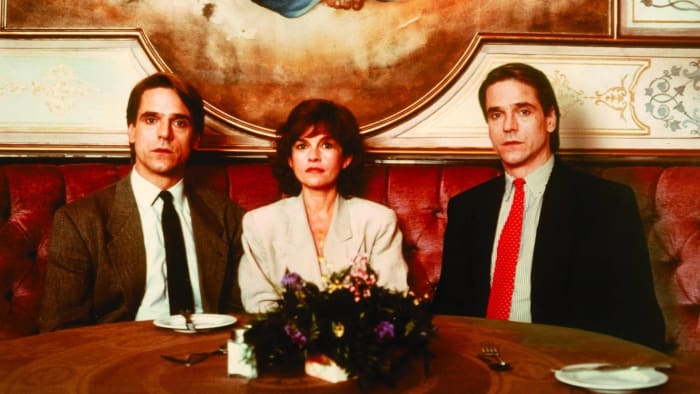
The true story of twin gynecologist brothers who worked together and died together in their Manhattan apartment of barbiturate overdoses or withdrawals just days apart is already odd enough. But when author Bari Wood and director David Cronenberg got their hands on the topic, they turned it into an ever-weirder tale of brothers who seduce patients and secretly swap places on the way to their untimely ends. Generally well-received by critics and audiences alike, “Dead Ringers” won numerous honors (including killing at Canada’s Genie Awards) and starred Jeremy Irons as both Beverly and Elliot Mantle.
"The Silence of the Lambs" (1991)

Another horror film, another Ed Gein-inspired character. This time, the creepy killer was the source behind Buffalo Bill, aka Jame Gumb, the serial killer sought by Clarice Starling (Jodie Foster) in 1991’s “The Silence of the Lambs,” often cited as one of the greatest films of all time. In the film and the 1988 novel on which it was based, Bill’s targets were strictly overweight women because he aimed to make a “woman suit” out of skin for himself to wear. This was also a goal of Gein, who wanted to become his deceased mother through similar means. However, Bill was also based on numerous other famous killers, including Jerry Brudos, Ted Bundy, Gary M. Heidnik, Edmund Kemper, and Gary Ridgway.
"Cannibal! The Musical" (1993)
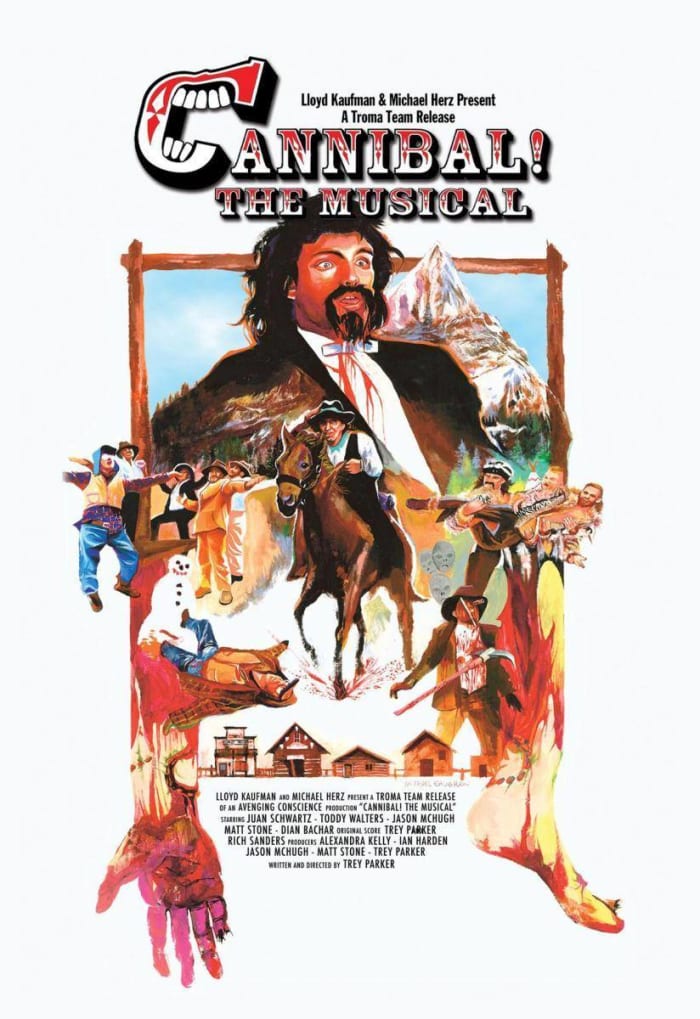
What kind of deranged individuals hear the story of Alferd Packer — a prospector who was convicted of eating his five travel companions (and killing one) while stranded in the Colorado mountains in 1874 — and thinks, “This would make a great horror-comedy musical”? The answer is the same two deranged individuals who created “South Park”: Trey Parker and Matt Stone. Initially called “Alferd Packer: The Musical,” the film was released prior to the duo scoring their now-infamous animated series. But it didn’t receive widespread attention and a cult following until after being acquired by Troma Entertainment (veteran horror filmmakers and creators of the “Toxic Avenger” franchise) in 1996 and renamed “Cannibal! The Musical.”
"Scream" (1996)
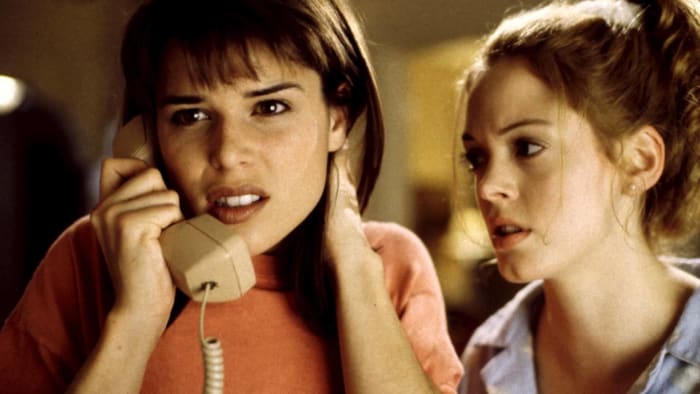
Few people realize it, because 1996’s “Scream” is a slasher film that also satirizes the slasher genre, but the Wes Craven classic was actually inspired by true events. In 1990, Danny Rolling (aka The Gainesville Ripper) terrorized Florida college students with a string of five grisly murders over the course of just four days, and he was later linked to a previous triple homicide. When “Scream” screenwriter Kevin Williamson first heard a news story about the killings, he noticed an open window in his house, became concerned, and subsequently penned an 18-page script that later became the now-iconic film.
"Dahmer" (2002)
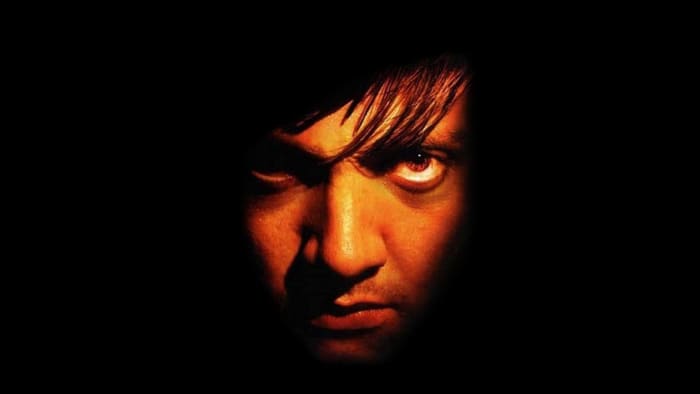
Unlike many entries in this list, the 2002 film “Dahmer” isn’t just based on a true story. It’s an actual biopic about serial killer Jeffrey Dahmer, who raped, murdered, and dismembered (and in some cases, partially preserved and/or consumed) 17 males in Wisconsin between 1978 and 1991. With the exception of the victims’ names and a few minor details, the acclaimed horror film was an accurate representation of the atrocious crimes committed by Dahmer, who was portrayed by a young Jeremy Renner in one of his earliest roles.
"The Mothman Prophecies" (2002)
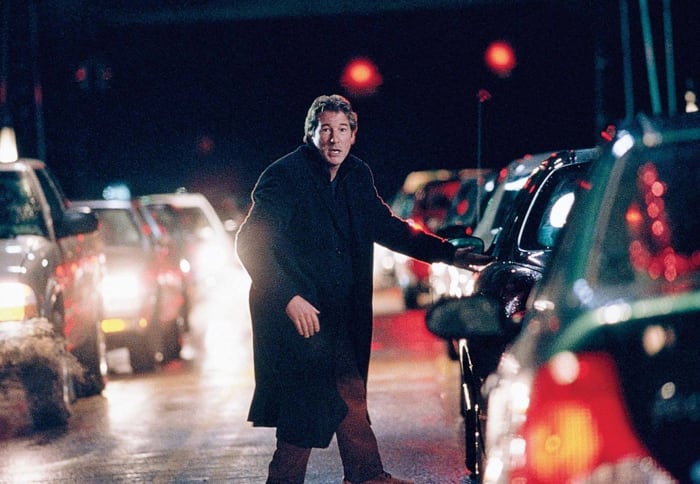
In 1966 and 1967, numerous residents of Point Pleasant, West Virginia, reported seeing a large, winged creature dubbed “Mothman.” Journalist John Keel investigated these claims and tying in his own theories about UFOs and other unexplained phenomena, he penned the nonfiction book “Visitors from Space - The Astonishing, True Story of the Mothman Prophecies” (also known by the shortened name, “The Mothman Prophecies”) in 1975. More than 25 years later, the book was adapted into a moderately successful film written by Richard Hatem, directed by Mark Pellington, and starring Richard Gere.
"Open Water" (2003)

Imagine taking a chartered boat ride miles away from shore for a scuba diving expedition and resurfacing only to find that you have been left behind, stranded helplessly in shark-infested waters. That’s the plot of the 2003 survival horror flick “Open Water,” and it’s also the story of Tom and Eileen Lonergan, who were forgotten during a 1998 dive in the Coral Sea and were never seen again. Shot on a budget of just $120,000, “Open Water” eventually earned $55 million at the worldwide box office.
"Wolf Creek "(2005)

“Wolf Creek” is a 2005 horror film about three backpackers in Australia who are kidnapped, tortured, assaulted, and (after escaping) hunted down by a killer named Mick Taylor. Although critics were divided, few can deny that “Wolf Creek” is a horrifically scary film, made even more disturbing by the fact that it is loosely based on actual events. In 1996, Australian Ivan Milat was convicted of murdering seven backpackers between 1989 and 1993. The film also drew inspiration from the actions of Bradley John Murdoch, a fellow Aussie who murdered English backpacker Peter Falconio in 2001. In fact, an Australian court delayed the release of “Wolf Creek” in the country’s Northern Territory in an attempt to avoid influencing Murdoch’s then-ongoing trial.
"Borderland" (2007)

“Borderland” is the only film on this list that holds a perfect 100 percent freshness rating on Rotten Tomatoes. The 2007 Zev Berman horror film is also based on the true story of Adolfo Constanzo, a Cuban-American drug lord and serial killer who led a cult of followers dubbed “The Narcosatanists” in Mexico in the ‘80s. Constanzo believed magic spells and the ritualistic killings of more than a dozen victims strengthened his gang, and Berman used Constanzo’s cult as the inspiration for his acclaimed film.
"Black Water" (2007)

No demons or serial killers were featured in the 2007 film “Black Water.” Instead, the horror flick co-directed by David Nerlich and Andrew Traucki focuses on three people who are stalked by numerous crocodiles while on vacation in Australia. Croc attacks are on the rise in general in Australia (given the increasing population of both the animals and humans), but Traucki said the inspiration for the film came from one specific account of two teens who climbed up a tree to avoid a crocodile that killed their friend, only to have the animal continue to circle the base of the tree and hinder their escape. And to add another element of realism to the film, “Black Water” mostly eschewed CGI in favor of 10 real crocodiles, one of which actually ate a camera.
"The Girl Next Door" (2007)

Sometimes fact really is stranger than fiction. In Indianapolis back in 1965, 16-year-old Sylvia Likens was put under the care of the Baniszewski family, who held captive, humiliated, and brutally and repeatedly tortured Likens until she eventually died of shock, malnutrition, and a brain hemorrhage. Given the extent of Likens' injuries and other atrocities committed against her — as well as the fact that the perpetrators included matriarch Gertrude Baniszewski, two of her teenage children, and two neighborhood kids — the events have been described as the most terrible crime ever committed in the state of Indiana. Jack Ketchum adapted the crimes into a 1989 novel titled “The Girl Next Door,” which was, in turn, adapted into a film of the same name in 2007.
"The Strangers" (2008)

When director Bryan Bertino wrote “The Strangers,” he was thinking of two real-life events: the infamous Manson family murders and the Keddie cabin murders. Although the story of the former is well known, the latter is a still-unsolved quadruple homicide that took place in Northern California’s Sierra Nevadas in 1981. Both incidents involved home invasions, stranger-on-stranger violence, and mass murders, although in “The Strangers,” the terrorized victims were just two people: a couple played by Liv Tyler and Scott Speedman.
"The Possession" (2012)
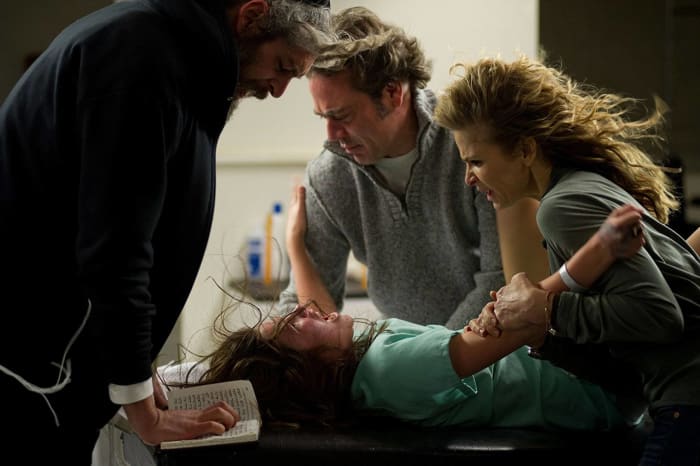
If you see “The Possession” and then find out it’s based on a true story, your first question would likely be, “Is the dybbuk box real?” Short answer: Yes. Yes, it is, at least according to its numerous owners throughout the years, most of whom have reported strange phenomena that accompany the object. When making the 2012 supernatural horror movie, the filmmakers, including producer Sam Raimi and star Jeffrey Dean Morgan, wanted nothing to do with the box. “Hell, no,” said screenwriter Juliet Snowden to its owner. “We don't want to see it. Don't send us a picture of it.” And according to director Ole Bornedal, five days after filming ended, all of the props were destroyed in a storage facility fire. The fire department never found a cause of the mysterious blaze, Bornedal added.
"The Conjuring" (2013)
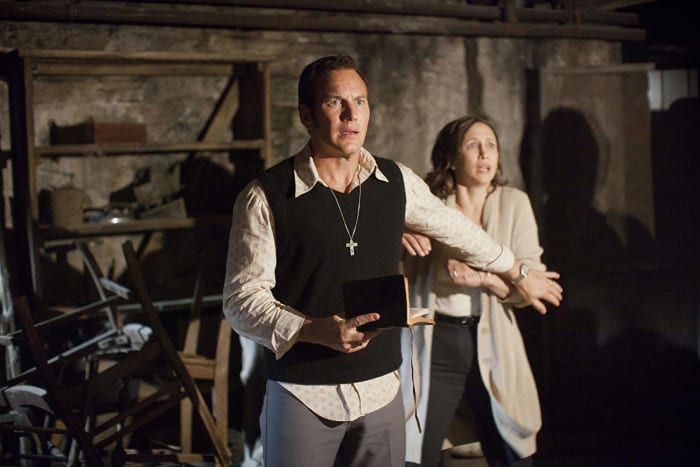
In 2013, film audiences were formally introduced to Ed and Lorraine Warren, real paranormal investigators portrayed in “The Conjuring” series by Patrick Wilson and Vera Farmiga. The first movie in a five-film franchise, “The Conjuring” focuses on the supposed real-life haunting of the Perron family’s Rhode Island farmhouse back in the 1970s. The $20 million film slew at the box office to the tune of $319.5 million, and it led to an equally successful sequel.
"The Sacrament" (2014)

Eli Roth was a producer on “The Sacrament,” a horror film based on the tragic events of the 1978 cult massacre at Jonestown but set in the current era. Presented as found footage, the 2013 thriller was written and directed by Ti West, and, despite earning just $9,221 at the box office, earned generally positive reviews from critics and audiences alike.
"The Conjuring 2" (2016)

Yes, this is one of those rare instances where a sequel holds up to the original. Director James Wan and stars Patrick Wilson and Vera Farmiga all returned for “The Conjuring 2” in 2016 to tackle another one of Warren’s investigations. Although the film begins with Ed and Lorraine checking out the aforementioned Lutz home in Amityville, New York (which they actually investigated in real life), the setting soon shifts to England for a visit with the Hodgson family and the Enfield Poltergeist. When we previously said the sequel to “The Conjuring” was equally successful, we meant it. While the original took in $319.5 million, the sequel made $320.4 million.
"Verónica" (2017)
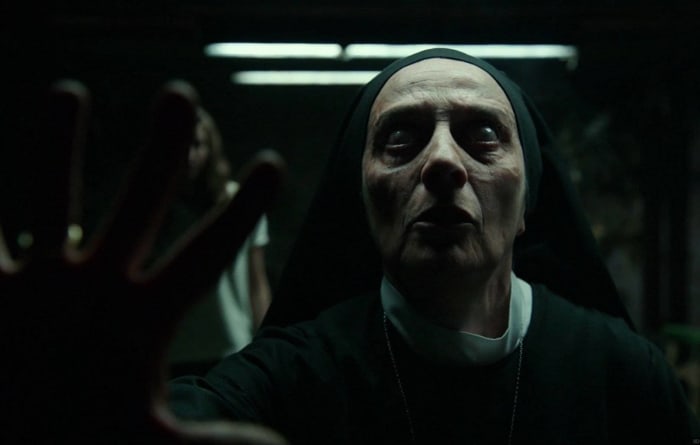
The 2017 Spanish-language horror film “Verónica” is based on the so-called Vallecas case of 1991. As the supposedly true story goes, Estefanía Gutiérrez Lázaro conducted a seance at her school one day using an Ouija board, and mid ritual, a nun came in and broke the board. Following this event, Estefanía experience months of seizures and hallucinations of strange, shadowy figures, eventually culminating (spoiler!) in her mysterious death. When the police came to investigate, strange noises were heard in her house, furniture moved on its own and a crucified Jesus figure separated from its cross on the wall. The events remain a mystery, and, if you ask us, it’s also puzzling how such a creepy event took 26 years to get onto the big screen.
More must-reads:
Trending in Entertainment
Customize Your Newsletter
 +
+
Get the latest news and rumors, customized to your favorite sports and teams. Emailed daily. Always free!
Use of this website (including any and all parts and
components) constitutes your acceptance of these
Terms of Service and Privacy Policy.

